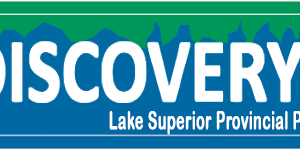As Indigenous Veterans Day and Remembrance Day quickly approach, it’s vital that we take the time to focused on our shared history and show gratitude for the sacrifices made by our veterans. While many will be attending ceremonies at cenotaphs on November 8th and 11th to pay tribute to those who have sacrificed so much, and many of us will be wearing poppies and donating to our local Legion branches, we still hear from veterans who are experiencing situations of distress that no person, and certainly not people who have served their country, should be facing.
Recently, CBC published a story about the Veterans Association Food Bank in Edmonton. Open since 2020, the food bank has been struggling to keep up with the quadrupling of demand they have received in just three years’ time. It’s just one story, but it encapsulates a growing concern that veterans aren’t receiving the help they need after having served their nation. As the Royal Canadian Armed Forces continue to struggle to recruit personnel, stories like these certainly don’t help with the perception that Canada is not doing enough to support those who have served honourably and admirably in the defence of their nation, particularly at a time where tensions and conflicts are raging across the globe.
So how can we better support our veterans? There’s a number of important matters that we can move forward on.
One issue that remains concerning is the continued privatization of veterans’ mental health and rehabilitation services. Partners in Canadian Veterans Rehabilitation Services (PCVRS), a company partly owned by Loblaws, was given a $560 million contract to deliver rehabilitation and mental health services to Canadian veterans, but the rollout remains troubled at best. Outsourcing veterans’ mental health and rehabilitation services should never have been an option, and the program remains mired in delays and a poor rollout plan that doesn’t address the needs of veterans.
Another area of real concern is the denial rate of benefits for veterans. Last March, the former Minister of Veterans Affairs testified at committee that 20% of applications for benefits are denied by the department. However, the Chair of the Veterans Review and Appeal Board (VRAB) later testified that 10% of Veterans Affairs Canada (VAC) decisions are reviewed, and of those reviewed through the Veterans Appeal and Review Board, the vast majority result in favourable decisions – between 88% to 90% in the last three years. This means that while a veteran has a one in five chance of being denied benefits by VAC, but if they ask for a review by VRAB, they have a nine out of ten chance in receiving approval. This is an unnecessary amount of red tape that results in veterans not receiving the benefits they need in a timely manner.
Canada has also refused to remove the so-called “golddigger” pension clause that has been on the books since 1901. This archaic, sexist clause prevents the spouses of veterans from receiving survivor pension benefits if they marry after the age of 60. Veterans’ groups have been fighting to get this clause eliminated from the Canadian Forces Superannuation Act for decades, and yet it’s still sitting on the books. In fact, the government has been sitting on the $150 million Veterans Survivors Fund since 2019, which was designed to compensate the spouses of those veterans who married after 60. It also makes little sense to have a clause like this continue when veterans’ pension amounts aren’t exactly lucrative. The maximum monthly pension rate for veterans and survivors in most circumstances is under $2,000 per month.
These are just a few of the major issues veterans are facing today. How a country treats its veterans has a direct impact on military recruitment. Canada’s military recruitment is currently at an all-time low, and in order for our nation to be prepared in an increasingly uncertain world climate, we must ensure that veterans are treated with care, dignity, and respect.
- Canadians Need Clarity on Oil and Gas Price Gouging - April 15, 2024
- Les Canadiens ont besoin de clarté concernant le gonflement des prix du pétrole et du gaz - April 15, 2024
- Carol Hughes Announces She Will Not Seek Re-Election - April 6, 2024
 Wawa-news.com You can't hear the 'big picture'!
Wawa-news.com You can't hear the 'big picture'!

